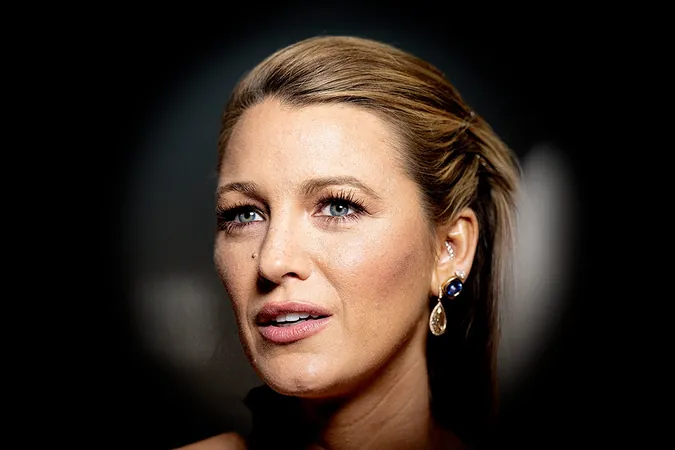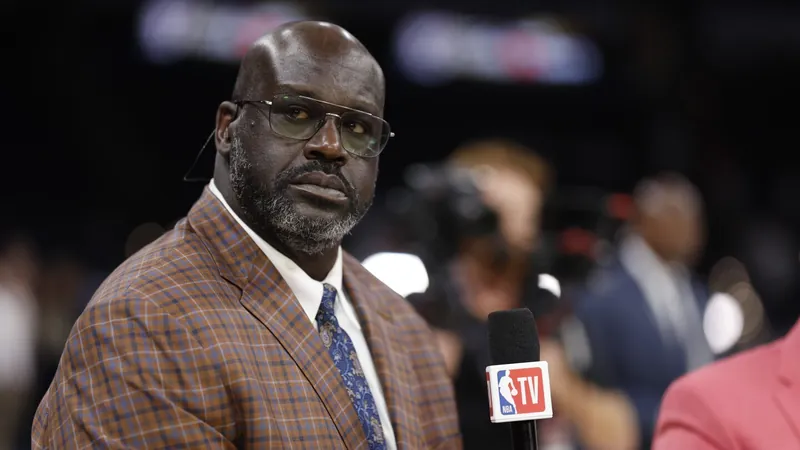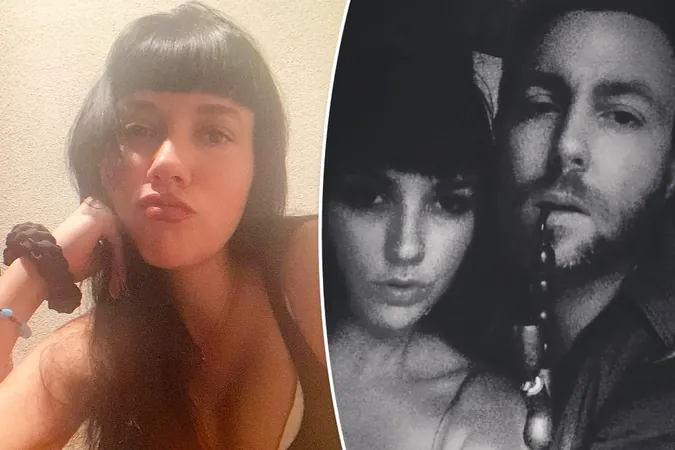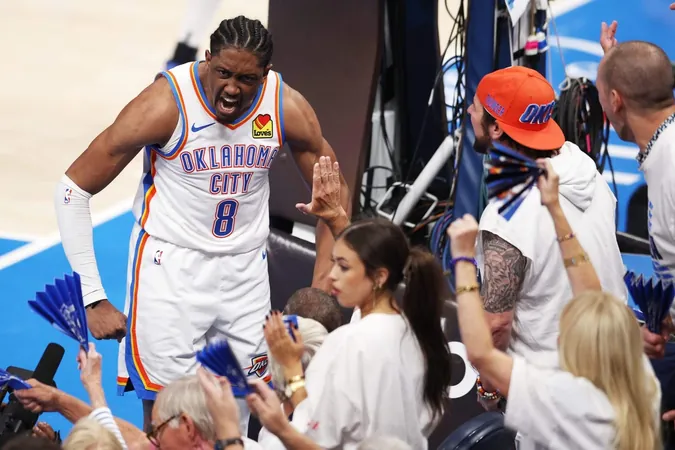
Blake Lively vs. Justin Baldoni: The Shocking Scandal That Exposes Workplace Misogyny
2025-01-04
Author: Jia
In a stunning development in the entertainment industry, the feud between Blake Lively and Justin Baldoni has taken a dark turn that sheds light on systemic issues surrounding harassment and misogyny in Hollywood.
Recently, Lively filed a legal complaint alleging that Baldoni, alongside film producer Jamey Heath and their production company Wayfarer Studios, subjected her to sexual harassment on the set of the much-anticipated film 'It Ends With Us.' More disturbingly, she claims they orchestrated a smear campaign against her, utilizing a crisis public relations firm to tarnish her image after the film's release. The New York Times has revealed shocking details from Lively's allegations, including messages from the PR team boasting about their ability to 'bury' Lively. Baldoni and Heath vehemently deny these accusations.
The reaction to the unfolding scandal has been overwhelming, spotlighting how damaging public narratives can be for women in the industry. According to one insider from the crisis PR firm, the extent of online vitriol directed at Lively was, described as 'actually sad,' indicating a troubling societal tendency to vilify women.
Baldoni, best known for his role on the CW's 'Jane the Virgin,' faced professional repercussions, including being dropped by his talent agency and facing a backlash for his perceived feminist stance. Even a prestigious award recognizing his efforts to promote gender equality was rescinded in light of these allegations.
Adding fuel to the fire, Baldoni, along with the PR firm and Wayfarer, has now filed a $250 million libel lawsuit against the New York Times for its reporting, asserting that their actions stemmed from a 'legitimate need for public relations protection' from Lively, whom they believe misrepresented their conduct. Their counterclaims suggest that Lively may be exaggerating her experiences and attempting to take advantage of her position to further her narrative.
The conflicting accounts have laid bare the ongoing struggle to define what constitutes sexual harassment in the post-#MeToo era. Lively alleges that Baldoni displayed a deeply inappropriate video of his wife giving birth, while Baldoni defends his actions, framing them within the context of professional discussions about a scene in the film.
Their dispute escalates as Lively claims Baldoni crossed professional boundaries by making personal comments about her, and even barging into her dressing room while she was breastfeeding. In contrast, Baldoni's lawsuit attempts to downplay these incidents as misinterpretations of his intentions.
Notably, the current landscape reflects a troubling paradox: the clash between self-identified male feminists and the women they often claim to support. The case has drawn parallels to broader societal issues, where men, even those who position themselves as allies, struggle to recognize the toxicity and misogyny that permeate their environments.
The fallout for Lively and Baldoni has ignited conversations among fellow actors, with individuals like Kate Beckinsale sharing their own stories of harassment and the pervasive culture of silence that persists in the industry. Beckinsale's revelations about her experiences serve as vital reminders that Lively's allegations are not isolated incidents, but rather part of a larger pattern that demands urgent attention.
Ultimately, this scandal not only exposes the potential for manipulating public perception through strategic PR tactics but also emphasizes the need for a collective reckoning within Hollywood. As the dynamics continue to unfold, one question remains: will the entertainment industry finally confront the uncomfortable truths about misogyny that its culture has long ignored?




 Brasil (PT)
Brasil (PT)
 Canada (EN)
Canada (EN)
 Chile (ES)
Chile (ES)
 Česko (CS)
Česko (CS)
 대한민국 (KO)
대한민국 (KO)
 España (ES)
España (ES)
 France (FR)
France (FR)
 Hong Kong (EN)
Hong Kong (EN)
 Italia (IT)
Italia (IT)
 日本 (JA)
日本 (JA)
 Magyarország (HU)
Magyarország (HU)
 Norge (NO)
Norge (NO)
 Polska (PL)
Polska (PL)
 Schweiz (DE)
Schweiz (DE)
 Singapore (EN)
Singapore (EN)
 Sverige (SV)
Sverige (SV)
 Suomi (FI)
Suomi (FI)
 Türkiye (TR)
Türkiye (TR)
 الإمارات العربية المتحدة (AR)
الإمارات العربية المتحدة (AR)